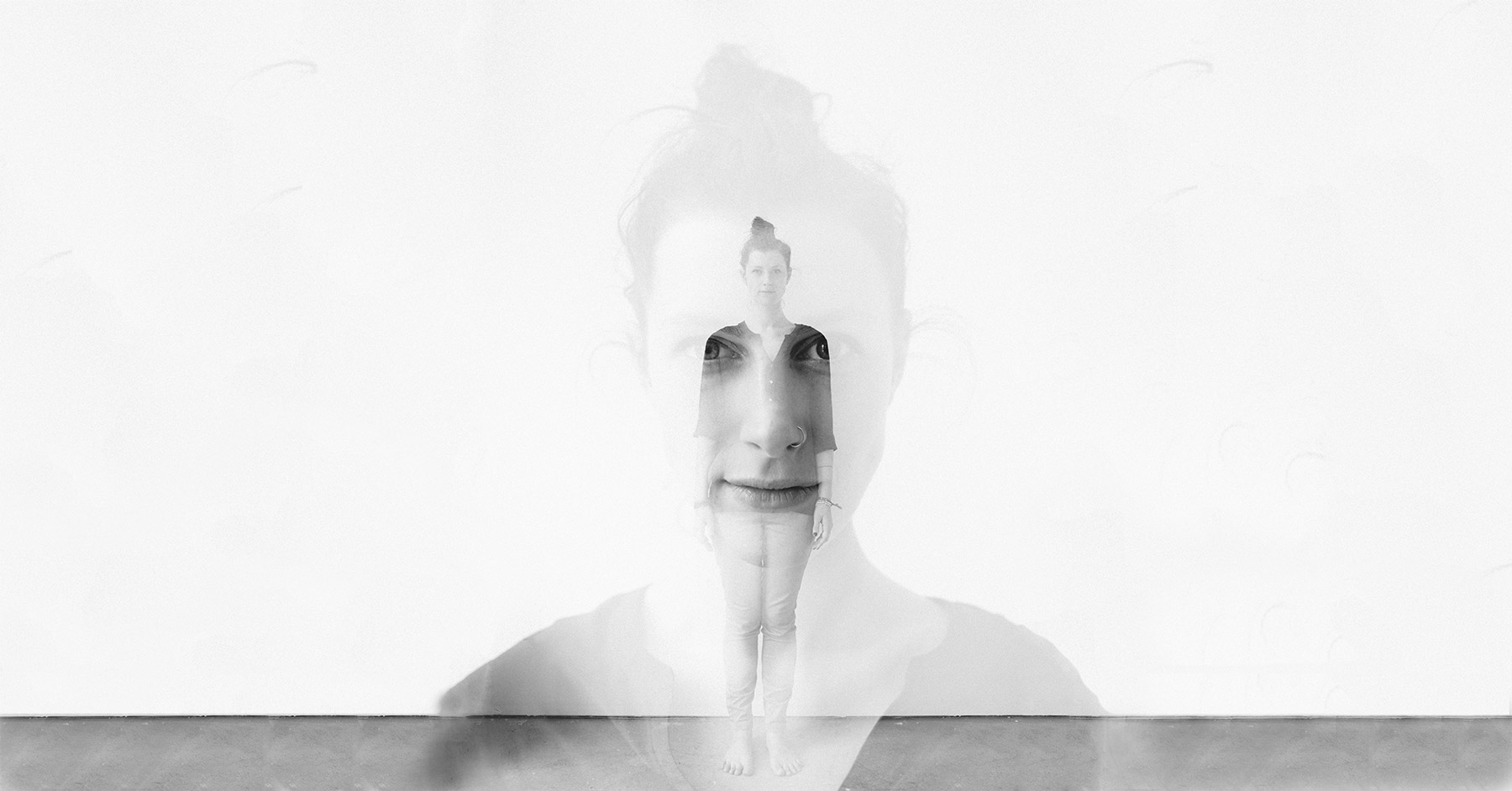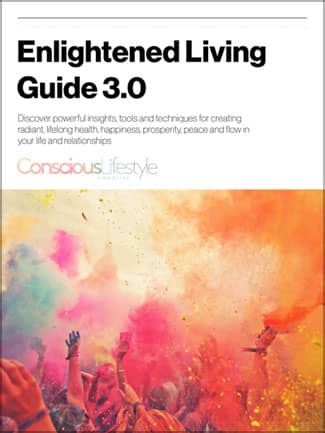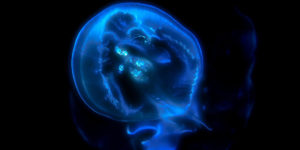Mastering the Mind Body Connection: 7 Deep Questions to Help You Uncover and Heal the Hidden Mental and Emotional Roots of Illness
BY HENRY GRAYSON, Ph.D.
 what goes on in the mind is always reflected in some way in the body—this phenomenon is known as the mind body connection and has spawned an entire field of therapy known as mind body medicine photo: ewan robertson
what goes on in the mind is always reflected in some way in the body—this phenomenon is known as the mind body connection and has spawned an entire field of therapy known as mind body medicine photo: ewan robertson
In recent years, clinical research has revealed a high correlation between uncleared developmental and adult traumas and the onset of physical and emotional illnesses, evidence of a mind body connection. For example, people who experienced early childhood mind and body traumas were far more likely to have serious illnesses in early adulthood than those who did not suffer from such traumas.
Stress is associated with most of our illnesses, indicative of this mind body connection. Although a 2012 study published in the Journal of the American Medical Association found that 60 to 80 percent of illnesses reported to primary care doctors may have a stress component, stress is more likely a factor in at least 80 to 90 percent of such cases. Emotional and physical health issues to which stress has been linked sweeps across the body and mind spectrum, such as stomach issues; muscle aches and pains; joint and back problems; increased blood pressure; increased heart rate; higher cholesterol; increased risk of heart attack; mood problems such as anger, irritability, depression, panic, and anxiety; headaches; low energy; lower bone density; loss of libido; and especially reduced immune response, which makes all illnesses, including cancer, more likely.
The Mental Roots of Stress
Stress is actually a network of traumas; negative beliefs, thoughts, and emotions; interpretative perceptions; and even “downloads” of family patterns of how to deal with stress. Stress-induced illnesses don’t just happen out of the blue, and prescription drugs do not eliminate them—they only dull the physical and mental symptoms and often create other illnesses, nicely called “side effects.” If we truly wish for happiness and a healthy mind and body, then we should look towards the holistic healing offered by mind body medicine, which deals directly with this mind body connection surrounding the causes of stress, far more than just popping a pill.
What stresses one person may be easy for another because stress has more to do with how we react to an event than the event itself. We all give our own meaning to people, objects, and events around us, and that meaning is colored by our past experiences and interpretations. For example, Bill grew up in a house where he had to do everything perfectly or his mother would become very upset. “What’s wrong with you that you did that?” was her characteristic response. Then his father would yell at Bill for upsetting his mother. Bill’s conclusion, like so many children, was, “I am no good. I am not loveable. I can’t do anything right. Something is wrong with me!” Thomas, on the other hand, grew up with similar parents, but he didn’t see himself as a “problem” child. Instead, he thought his parents were “crazy.” As a result of his mind body connection, he stayed out in the neighborhood as long as he could, playing with other children. He hurried through dinner and rushed to his bedroom to do his homework. He made a point not to be around his parents any more than he had to.
Is it any wonder that Bill got sick several times a year because of terrible stress, which was stored in his body and mind, whereas Thomas rarely got sick because he wasn’t stressed? For reasons we do not know, Thomas was able to see things very differently and felt some control instead of taking his parents’ behaviors and attitudes personally. Bill, however, felt powerless to protect himself, so he became traumatized. The pattern of sickness for Bill and health for Thomas continued well into their adult lives and highlights this mind body connection.
Taking Control of Your Health: The Emotional Connection
The bottom line to this mind body connection is whether we perceive ourselves as powerless in a situation or as having the power to deal with the situation effectively. When we see ourselves as “at the effect of,” we are most stressed or traumatized. And that can go right into our bodies and minds and reduce our immune function; therefore, healthy mind, healthy body.
Even minor emotional stressors—if we interpret them negatively or feel powerless against them—can set off smaller psychosomatic mind and body symptoms such as colds, viruses, back pains, and allergies. Prolonged or accumulated emotional stresses often lead to more serious physical health ailments. A Johns Hopkins study reviewed data on 95,000 American children and found that nearly half experienced trauma, including physical or emotional abuse or neglect, deprivation, substance-abuse problems, or exposure to violence. Children who had two or more of such emotional experiences were twice as likely to have chronic health problems, indicative of a mind body connection.While the good news is that mind body medicine can clear the effects of traumas—we do not have to live with them and let them make us sick—many people are puzzled about why in our relatively affluent society we still struggle to feel happy and physically well in our body and mind; especially when we are aware that a healthy mind leads to a healthy body. This has led us to ask several important questions:
+ Why don’t we often follow medical advice? (According to the American Heart Association, only 10 percent of us will maintain a heart-healthy lifestyle even though we know the measures. Also, only 5 percent of us who study meditation for stress reduction continue to practice it regularly for more than a few months.)
+ Why do visualizations, affirmations, diets, and exercise regimens often fail—even when a person is intent on making them succeed?
+ Why do physical symptoms or emotional mind and body problems seem intractable, even after years of talk therapy?
The answers to these questions lie in the hidden beliefs, unresolved traumas, and family downloads that influence our mind body connections. I think of this issue as a metaphor: first you pluck the weeds, then you plant the flowers. Just as flowers will not thrive in a garden full of weeds, so it is in our mind and body. If holistic healing tools such as visualizations, mind body medicine, or alternative treatments are to work fully and deeply, we need to pluck the weeds of traumas, stresses, negative thoughts and beliefs, and negative parental downloads that act as huge barriers to physical health and holistic healing.
Are You Being Affected by Parental and Ancestral Baggage?
What do I mean by “downloads”? All children imitate the behaviors of people around them. A dramatic example is cited in most mid-20th-century psychology textbooks. A baby, abandoned in the woods in Mexico, was raised by a wolf that had just given birth to pups. Ten years later, the girl was discovered running on all fours with a pack of wolves and making wolf sounds. Wolf-child stories like this one, though rare, illustrate what we all do: download the positives and negatives from our parents who did the same thing from their parents. This is why we cannot blame them—or ourselves—for holding thoughts or beliefs that may influence our mind body connection though not serve us. Fortunately, there are mind body medicine tools we can use to clear downloads we do not wish to keep, just as we clear unwanted programs in our computers.
As to the plethora of “weeds” we need to “pluck” in order to create and sustain the physical and emotional health that’s possible for us—a healthy body, healthy mind— I’d like to share a brief story about how widespread the unconscious “weeds” are in our culture.
Before I started a training seminar for a group of psychotherapists and health-care professionals in Boston, I made the intuitive decision to open the seminar by asking the audience, “How many of you would like to have a totally happy and healthy life?” Every hand went up instantly, and everyone agreed this is indeed what they wanted. Then I asked them to inquire further about whether they believed they deserved to have a healthy body, healthy mind, and happy life and whether it was safe to lead such a life. The results were startling. One hundred percent of the attendees had at least one of two negative belief barriers: either they believed they didn’t truly deserve to be happy and healthy or that it wasn’t safe to be happy and healthy. In addition, 82 percent had both of these negative beliefs. What do these results reveal? That the majority of the self-aware people in that room unknowingly had at least one strong, implacable block to having a fully happy and healthy mind and body and life—even though they said they wanted that life and know about the mind body connection.These results were not just from Bostonians; I repeated this survey in ten other cities across the United States and Canada, getting virtually the same results. When I asked each audience at the end of each survey, “How many of you have a totally healthy body, mind and happy life?” only an occasional hand went up. This reality confirms how easy it is for us humans to deceive ourselves.
When I was studying with psychiatrist and Holocaust survivor Viktor Frankl, he often quoted philosopher Friedrich Nietzsche, who said that the person we lie to most is ourselves. This is not because we are bad people and liars; it is because 95 percent of all our behaviors, both positive and negative, are unconscious, a key that lies at the heart of mind body medicine. Johns Hopkins neuroscientist Candace Pert, Ph.D., expressed this mind body connection for all of us in the title of her audio CD Your Body Is Your Subconscious Mind. She urged the need to translate the language of our bodies to understand what is truly going on in our minds, rather than just fixing a single body part like we do with automobiles.
How I Learned to Heal Myself: The Keys to Working With the Mind and Body
My work with self-healing and helping others to do the same has come out of a lot of personal experience with profound successes in holistic self-healing, not just some airy-fairy theories. It all started back in my early twenties—which is hard for me to believe. How could I have begun to be interested in mind body medicine when I was so young?
Though I had a mostly healthy body and mind, from my mid-teens until my mid-twenties I routinely had severe sore throats and debilitating colds three or more times a year. Then, when I was in graduate school at Boston University, I remember a below-freezing day when I was outdoors repairing a fence so my dog would not get out and run onto the busy highway nearby. I had comprehensive exams coming up in a couple of days, and I had been giving up weekends for several months to study and prepare for them.
As I worked in the icy wind, I started to get a sore throat, which always developed into one of those horrendous colds, and I was concerned about being too sick to take my exams. “Damn,” I said. “This is the last thing I need right now!” I could have easily blamed the sore throat on the weather or the person who sneezed around me the day before, which is what most of us humans do when we disown our power. In the past, I usually raced to the doctor for medicine: a shot of penicillin. But this time I let myself think something else. I didn’t blame it on something external or seek an outside cure. Instead, I began to see that the body and mind can’t be separated—healthy mind equals healthy body. There’s always a mind body connection linking the two together. This moment of psychosomatic realization was a major turning point on my journey into holistic self-healing.I suddenly remembered the directed study I had worked on the previous semester about the mind body connection—there were no such courses offered in graduate psychology programs at that time. In the decades after World War II, researchers believed that a handful of illnesses had a psychosomatic relationship: ulcers, asthma, skin disorders, and a few others. As I fixed the fence, I wondered: How could there be a body and mind connection with only a few physical problems but not others? How could any part of the body be excluded from the influence of the mind? It didn’t make sense. So I began to ask myself three mind body medicine questions in relation to the early signs of a sore throat:
+ Why might I need this symptom now?
+ What would the symptom get for me?
+ What would it get me out of doing?
With the third question, my immediate thought was that being sick would get me out of taking the comprehensive exams. But I then quickly realized that I clearly did not want that. I was eager to have the exams behind me, and because of my disciplined studying, I was 97 percent prepared. I was looking forward afterward to having time for family, friends, relaxation, and play, so I knew I was not looking for a bad cold to get me out of the exam. Exploring the mind and body psychology further, I then moved to a fourth question:
+ What emotion is being expressed in this symptom?
With that question in my head, I saw my neighbor standing at her kitchen window, which overlooked my backyard, and I felt a deep pang of guilt. Wow, I thought. I must be onto something important! Then I questioned why I felt guilt. I realized that I had projected onto my neighbor that she was angry as she watched me work in this horrible weather when I had not yet helped her father move furniture, as I had promised. I had no idea whether the neighbor woman even saw me, nor did I know what she was thinking. I was truly projecting, which all human beings are prone to do. However, I did know I wasn’t trying to wriggle out of my promise to her father, for I always keep my word. I planned to move the furniture on Tuesday, the day after I finished my exams, but my emotional projection was causing me to feel guilt, which psychosomatically was going right into my otherwise healthy body and mind—and specifically my sore throat.
Making the Unconscious Conscious: 4 Key Questions
I then began to wonder about this unconscious mind body connection: Did I need to get sick with a bad sore throat and cold to punish myself with the guilt? No way! I told myself. I don’t want to pay that price. To reinforce my guiltlessness, I said to myself, When I finish my fence work, I’ll call my neighbor and explain that I have not forgotten my promise to her father, that I’ve been preparing for comps, and that after I take them on Monday I’ll be over on Tuesday to move furniture.
Amazingly, within twenty minutes of becoming aware of this mind body connection and making that decision to deal with the guilt instead of having my body get sick, my sore throat totally disappeared; and for the first time in years, it did not develop into one of those horrible colds; hence, healthy body and healthy mind. And I had not even called my neighbor yet. I concluded that by resolving the emotional barrier, I had no need for the sore throat anymore; a holistic healing approach I have since learned usually applies to most physical health symptoms I get.
That was the last time I’ve gotten sick with a cold, and it has been decades! Since then, anytime I notice a little sore throat or the sniffles, I use a mind body medicine approach and stop to ask myself those same four questions. Once I get the mental answer, I then choose a different way of dealing with the answer rather than paying the price of a cold. I find an answer to one of the questions, identifying the mind and body connection, and then come up with a healthy and productive alternative to being sick. Next, I make a firm commitment to carry it out, and the symptoms cease within minutes. Over the years, I’ve added additional questions to cover more possibilities. But that was when I started to see, as the new physics now teaches, that it is neither matter nor the body that rules. It is consciousness.
Although I began doing holistic self-healing in grad school, it never occurred to me to ask myself those mind body psychology questions about anything else other than colds. This is so typical of the egoic mind—the part of our mind that wants to keep us powerless, in ill health, in failure, unhappy, and without love. The egoic mind has been called by many names throughout the centuries: the Great Deceiver, the wolf in sheep’s clothing, the devil, Satan, the ego, the enemy, and others. It is so characteristic of the egoic voice that it’s speaking into my mind and body at this moment as I am writing, causing pains down my right leg, hip, thigh, knee, and calf. It wants to distract me and oppose me writing this. As I acknowledge this pervasive and elusive mind body connection and identify it now as the “great deceiver” it is, the pain is starting to depart. This voice always wants us to “be at the effect of,” not the “effector.” The pain is departing because I took back the power in my mind, which that deceptive part of our minds does not want us to do.
Some years after my graduate school experience, I began to have a physical back problem. First, it was rather mild; but it gradually worsened until it took me over half an hour to slowly creep the six blocks to my office. Wanting to restore my healthy body, I went to chiropractors and massage therapists; I took medicine—muscle relaxants and anything else I heard about. Nothing solved the problem. Why? The problem was inside, and I was seeking answers from outside. In essence, I was disowning my intrinsic holistic healing power and projecting the cause and cure to something outside me. This is a major problem of our human condition, and our culture promotes this unhealthy mind body dis-connection perspective everywhere. Finally, the physical pain got so bad that I was stuck in bed, unable to move a centimeter without feeling like I was being jabbed with an ice pick and shocked with electrodes. My doctor said my X-rays showed that I had a severely degenerated disc. He added, “You probably won’t be able to walk again without back surgery.”
I was shocked and traumatized by his prognosis and diagnosis. At that time, it was well known that 68 percent of the people reported feeling worse after back surgery. I didn’t want to take that chance. I had always loved being active in my sports-filled life. What could I do? I didn’t want a medical treatment that could create one or several more physical problems.
Suddenly I “woke up.” I had never remembered to ask myself those mind body medicine questions I’d asked about colds in relation to my back problem. My egoic mind, the internal enemy, had not let me make that mind body connection. Only when I was challenged with the possibility that I might never walk again did I remember that I could ask myself those body and mind questions. Duh. This is why we all need tools to identify and get past our internal barriers to holistic healing. As I began reclaiming my power to self-heal, I asked myself those questions again:
+ Why might I need this symptom now?
+ What would the symptom get for me?
+ What would it get me out of doing?
+ What emotion is being expressed in this symptom?
As I reflected on my answers to those mind body medicine questions, I came up with four things I needed to attend to. There was a friend I felt abandoned by and a colleague whom I felt betrayed by. I needed to deal with these two emotional traumas constructively and directly, and I needed to work them out inside myself first and then with these two people in person. I made a firm commitment to do this as soon as possible.
 the mind and body enjoy a powerful relationship that most tend to underestimate when it comes to health and wellness.
the mind and body enjoy a powerful relationship that most tend to underestimate when it comes to health and wellness.
Then I became aware of two lifestyle issues that needed attention. I had always done many different sports and had been running regularly in Central Park for routine exercise, but I had never stretched. I also realized I had no constructive methods for reducing stress. Although I was never a big drinker, when I was upset about something, I would make myself a stiff Scotch on the rocks. I needed something more healthful; so again I made a firm commitment—one I knew I would not break—to start a yoga practice for stretching and a meditation practice to lower stress. I also committed to talking with the two people I had issues with as soon as I could meet with them. Now that I saw the mind body connection, I had healthy mind and body strategies in place.
Once again, a most amazing thing happened! After making these firm mind body commitments, which I knew I would keep, I started to get better. It was the change in my mind that produced the change in my body! I was going to work again in a few days; I was largely pain free in a couple of weeks. And two months later, I was skiing in Colorado! It took the threat that I likely wouldn’t walk again without back surgery for me to remember to use those mind body medicine questions. Now I have no trouble at all remembering—finally. I use them with every symptom I get, large or small, and have added several, other important ones, as you will see later.
In 1991, when John Sarno, M.D., published his book Healing Back Pain, I called him to share my experience of holistic self-healing and to thank him for making the information that the mind can heal the body available to the world—and especially that he did that as a physician. I will never forget his words to me: “As long as one believes the back pain comes from an organic cause, no matter what the X-rays say, the pain will persist.” And now I have multiple experiences that show me that such a result—a healthy mind and healthy body—is not limited to back pain. No part of the body is exempt from consciousness.
A few years later, I met my friend Tim, a chiropractor, at his office to go out for lunch. After he greeted me, he asked, “Henry, before we go to lunch, could I take a look at that back of yours? Your story is so amazing.”
“Of course,” I said, as I lay down on his examination table. He poked around my spine, oohing and aahing. Then I got up to go to lunch. As we entered the hallway, his colleague was walking by, and Tim commented to him, “Given the condition of Henry’s back, it’s amazing what he has done to heal himself!”
Healing My Back Pain With My Mind
Instead of thinking of my healthy body, you can guess which words I allowed to stick in my brain: “given the condition of Henry’s back.” As we walked the couple of blocks to the restaurant, my back started to pain me. Soon sciatic pains shot down my leg. Throughout lunch, the pain grew worse and worse and then increased as I drove the half hour home. The psychosomatic pain continued for several days until I “woke up” again and remembered the power of self healing and mind body medicine. I said to myself, I have done nothing to injure myself. The only thing that happened was Tim’s words: “given the condition of Henry’s back.” I then reassured myself, My back has served me beautifully for several years. I will let go of Tim’s words and trust that my back will continue to serve me well as it has been doing.
Within a few minutes of catching the problem and changing the instructions to both my body and mind—making that mind body connection—the pain went away. Actually, the pain did not “go away.” It did not have the intention nor the power. Instead, I had no more need for it; I refused to keep sending that kind of message to my body, because my body listens to every word I think or say.
Again, it was not the pain that had an “intention” or power to go away. What an experience to illustrate the power of words in creating a healthy mind and body. Just as placebos are effective, the nocebo (which is the opposite, the negative) is also powerful, as I learned. But it was powerful only because I let Tim’s words “given the condition of Henry’s back” enter my mind and body strongly and linger for days. Instead, I could have let the other half of Tim’s sentence resound: “It is amazing what Henry has done to heal himself.” But the negative voice jumped in so convincingly that I listened to it and believed it. That egoic voice is like Velcro to the negative and like Teflon to the positive. For healing, instead of an antibiotic, maybe we need an “anti-egoic.” We need to learn to deal with that automatic voice of powerlessness inside—repattern it—to make a stronger mind body connection.
For many years, my back continued to be pain free as I lived my active lifestyle, cognizant of the mind body connection that manifested my back problem. I had honored my commitments with myself: I had dealt with the issues between me and the two other people, and I continued practicing yoga and meditation to maintain a healthy mind and healthy body. Now, ten years later, I went to the doctor for a routine physical. He suggested that he X-ray my chest, which he hadn’t done for years; but I said that I knew my lungs were healthy. Yet he insisted he would be remiss if he didn’t take an X-ray. I told him I wished to avoid unnecessary radiation, but he convinced me his new equipment was much better, with far less radiation.
After the X-rays, the doctor returned to tell me that my lungs looked fine and healthy. Then he began to stammer: “But . . . but . . .that disc of yours!” I became a little frightened, thinking he must have found something wrong. But then he added, “It’s a miracle, Henry! This is not possible!” “What?” I inquired. He replied, “That disc of yours is totally restored! That’s not supposed to happen!”
It seems that the changes in my body and mind, which led to changes in my lifestyle, gave messages to my disc to return to its normal state, the essence of mind body medicine. I no longer needed the degenerated disc. That psychosomatic need was taken care of in a healthier way because those cells had gotten a different message from my mind than they had in previous years.
In the years that followed, I did holistic self-healing on several other symptoms. On Christmas morning when my youngest son was about three years old, I was playing with him on the floor as he opened his presents. As I sat enjoying the time with him, I started to develop a sore throat and some sniffles despite my otherwise healthy body and mind. On top of that, my back began to hurt. I asked my wife to come back from the kitchen and take over with my son while I went into another room to make the mind body connection, to meditate and reflect on why I might need those symptoms. I did not want to get sick and ruin Christmas Day with my family. She readily understood. As I meditated, asking those questions, the only answer I could get was that I needed rest. I had been unusually busy that fall, with a lot of traveling and speaking, in addition to my full clinical practice. It was understandable to me that I needed rest, but I had no plans to give it to myself.
When I returned back to the Christmas scene, my wife asked, “What did you discover?” I replied, “I get that I need rest because I’ve been overly busy.” She replied, “Are you taking the day off tomorrow, then?” I said, “I never do that. I do not ever cancel my patient appointments.” To this, she asked, “Would you rather get sick?”
I instantly knew she was right. If I had a need to rest but did not attend to what my mind and body needed, I would certainly get sick, cause and effect in the mind body connection. So I committed myself to calling and canceling all my appointments for the next day so I could stay home and rest. Within a half hour of that new commitment to myself, my backache and cold symptoms were gone, holistically healed. I did not need them any longer, for I had chosen a different way of taking care of myself.
Self-Healing: How to Restore a Healthy Mind and Healthy Body
In the years after healing my back, I attended a seminar with esteemed physicist David Bohm, Ph.D., author of Wholeness and the Implicate Order, where I learned that the new physics—also called quantum physics—says that we are not separate. In fact, Bohm argued that nothing is separate in the universe, supportive of a mind body connection. There is just one unified field, and everything is interconnected, a holistic model. This means that nothing is separate from the All That Is, which religions have referred to as God. I later learned that quantum physicists are now saying that it is consciousness—not matter—that rules the universe.
These experiences of self-healing with mind body medicine kept me inspired to expand my thinking. What is the nature of healing and ensuring a healthy mind and body? Is it just a way to get rid of bodily symptoms, which is mostly why we go to a doctor? But is that the true healing? If a doctor fixes a physical symptom with a medical intervention of some sort, have we truly healed? Since we have not gotten to the root—to what created the symptom—the cause is not healed. Most likely we have temporarily freed ourselves of just the symptom, not the cause, so repetitions are more likely unless we holistically heal the body and mind.
I began to realize that true self-healing involved several dimensions of understanding and changing to the mind body connection, which I have listed below. The first two are experiences that moved me out of a feeling of powerlessness, where symptoms happen to me and in which the cure is outside me. True, holistic self-healing with mind body medicine involves:
+ Getting to what the symptom is saying by thinking of the symptom as a language to be deciphered and then dealing with the translated message differently
+ Giving different messages consciously to the cells to promote healing
+ Using one’s inner power to make more active, conscious choices for dealing with the cause rather than disowning your power and giving it to someone or something else
Through these steps to holistic healing, we begin to change our false self-identity—that we are small, powerless, and separate from the All That Is—and then to embrace our True Self, which houses immense potential for creation, and restores a healthy mind, body and spirit.
A few years later, I found that I had a hernia that the doctor said needed repairing. I tried unsuccessfully to do body and mind self-healing and ended up having surgery. Does this mean that perhaps I became frightened of my inner power and could not avail myself of it this time for mind body medicine healing? I think so. Most of us are quite afraid of embracing our true inner power, though we chase after it outside in the world all the time. Perhaps the two things we humans seek the most, love and power, are the two things we’re also most frightened of because we have so much difficulty sustaining genuine ownership of them. As I type this, the word-processing program lights up “self-healing,” letting me know that “self” and “healing” should not go together in one word. The software is actually acting like my ego mind!
Fortunately, I did not let my failure with the hernia stop me from further attempts at self-healing because I knew that holistic healing is much more than getting rid of a physical or emotional symptom that’s anchored into place by the mind body connection. Now I also see that the various symptoms and my ways of doing other self-healings were quite diverse. I demonstrate that in more detail in my book so that you won’t conclude that there’s just one simple way to heal with mind body medicine and that if that simple way doesn’t work, you have failed.
Most of us need to take back our intrinsic power in increments. Sometimes, we may need to give power to something external to make it happen, at least until we’re ready to claim our innate body and mind power more completely. For instance, I once had a bone spur on my heel, and the doctor said that surgery was necessary. I told him I wanted to attempt self-healing first but that I’d be back if I wasn’t successful. I identified the mind body connection and emotional factors involved and dealt with it successfully, but my bone spur remained. I then realized that I required something additional to restore my previously healthy body. I needed to give my bone spur different instructions. Because every thought is an instant message that travels via neuropeptides to every one of my 40 trillion or more cells, I decided to give some kind of healing information to the cells in my bone spur. It took me two or three weeks to find a healing ritual that fit.
One morning as I was in my bedroom getting dressed, I became aware of how good my feet felt on the carpet, the little bones in my feet flexing with each step. That inspired me to spend five minutes each morning walking barefoot on the carpet. While I walked, I would strengthen my mind body connection by saying to myself, “When all the little bones in my foot are flexing as I walk, this increases the circulation in my foot. The blood is flowing around the bone spur, gradually eroding the spur, and removing the residue of it from my body.”
As I did this for the next six weeks, the bone spur became smaller and ultimately disappeared. I needed to deal with the cause of the bone spur, but I also had to reprogram my mind and body’s information system to create a complete healing. These experiences with my colds, my back, and my bone spur are the powerful beginnings of my own self-healing. I continue to do this with myself, and I work with others to uncover their own mind body connections.
The Infinite Possibilities of Self-Healing: Understanding How What We Think Affects Our Health
How we think of ourselves is critical to self-healing with mind body medicine. If we see ourselves at the mercy of the many perceived causes of sickness, self-healing will be difficult. Unfortunately, our culture and our widespread worldview have tended to support this perspective, missing the mind body connection. We see ourselves at the effect of germs, viruses, our genes, and even pollen or the weather. We also tend to think that all the healing comes from outside sources, such as the doctor who orders a prescription or medical procedure. These may be helpful sometimes in getting rid of a symptom, but medical interventions may now be a leading cause of death.
The purpose of mind body medicine is to help you get to the underlying cause of the symptom and then deal with it constructively to heal and return to a healthy mind and body—and not create more problems in the process, as many medications, tests, and procedures often do. Most of us don’t think we possess the power of self-healing, even though it’s our intrinsic nature. As you shall see, this perspective is confirmed by both the science of quantum physics and ancient spiritual wisdom.
Thinking of ourselves as powerless is so commonplace that it’s not easy to recognize. To illustrate how often and automatically we feel that we’re at the mercy of forces beyond our control, consider the words often used by doctors, which powerfully impact the mind body connection:
+ “Is your shoulder still bothering you?” (This implies that your shoulder has the power and intent to cause you pain.)
+ “I’ll put you on this medication.” (This implies that you’re helpless as a baby, and someone who knows what they’re doing must manage the situation.)
+ “You’ve been under a lot of stress lately, so take this pill.” (You’re incapable of de-stressing from this stress hanging over you, so you need a drug to fix your symptoms.)
+ “Let’s watch that symptom for a while and see what it does.” (We give power to the symptom rather than giving ourselves the authority to communicate clear messages about what to do to maintain a restore a healthy body.)
And think about the language we use with ourselves:
+ “I caught the flu from that person at work.” (You feel powerless and have no choice but to reach out and “catch” whatever germ is in the environment.)
+ “My back is killing me.” (This implies that your back has a powerful intention to harm you.)
+ “It’s that food I ate.” (The cheeseburger controls your digestive system.)
+ “I heard on the news that it’s a bad allergy day. I know I will feel miserable today.” (The pollen count—or the allergy report itself—determines how you will feel.)
+ “I will get the same sickness my mother or father had.” (You are a victim of your genes; you will repeat ancestral patterns, rather than experience a healthy mind and body.)
Oft-repeated phrases like these support the belief that we are powerless, which only promotes sickness by sending these messages via the mind body connection to our body’s cells instead of supporting our use of our own innate healing powers.
Unlike with holistic mind body medicine, Belief in our own powerlessness is just as much a factor in mental disorders as physical illnesses. What is the underlying dynamic in depression, anxiety, obsessive compulsive disorder, traumas, addictions, and phobias? It is the feeling of powerlessness and our ineffective ways of recognizing the intrinsic power that exists in our body and mind to deal with it. In fact, we humans get so attached to these feelings of powerlessness that we think any other perspective is false, outrageous, impossible, or even crazy. It seems that one of our greatest fears is to embrace our inner power.
The Old Scientific Worldview of Healing
Most westerners today follow a scientific worldview that originated almost 350 years ago by Isaac Newton, in which the only things that are real are those that can be observed or measured through the five senses. Although Newton’s discoveries revolutionized science, there’s no room in the Newtonian worldview for the mind body connection or the role of human consciousness and how it can create change within the body. And there’s certainly no allowance for miracles that are possible in the invisible—yet quite real—quantum or spiritual realms. Ironically, Newton became most famous for outlining the laws of gravity—which cannot directly be verified through the human senses. Even Newton had to change his original belief that one object cannot effect another without touching it. We also need to change our old beliefs and consider the potential healing power of mind body medicine.
In addition to Newton’s worldview, mainstream medicine and its theories of infectious disease are based on germ theory, as expressed in the 1860s by Louis Pasteur. He viewed the body as a sterile machine that operates more or less efficiently until a foreign substance is introduced. Current theory based on Pasteur’s ideas says that when specific microbes (germs, bacteria, viruses, cancer cells) enter the body, they produce a specific disease. This theory does not consider the role of consciousness in this process nor how it affects the way the immune system responds to the microbes. Unlike mind body medicine, conventional allopathic medicine ignores the mind body connection and uses chemotherapy, radiation, antibiotics, antivirals, and other drugs to attack and destroy these organisms, because in this system of thought if there are no microbes left, there will be no disease. This commonly held belief is that our health can only be restored if germs or microbes that cause illness or disease are eradicated, meaning that we are at the mercy of microbes and can be restored to health only by another substance apart from us and our power. (It’s interesting to note that Pasteur himself later changed his own germ theory, giving more power to the environment. The environment includes consciousness above all else.)
The reality is that we are constantly exposed to germs, bacteria, viruses, and even have a certain number of cancer cells in our bodies. The outdated, mechanistic germ theory does not explain why these cells multiply at one time and not another. Further, treatment only with medications does not tap into our internal holistic healing power; it temporarily corrects the surface problem in the short term and reinforces the concept that the healing power is external. I don’t condemn the advances in modern medicine, nor am I saying you should never take prescription medications or have surgery, because these methods can save lives. However, it’s too easy to pop a pill, feel better (temporarily), and search no farther for the internal emotional blocks to healing the cause. Let us never stop with short-term solutions of symptom removal but continually be curious to discover—literally “remove the covering”—not re-cover the real mind and body and causes of health problems. Dealing with the underlying emotional source of disease—from the common cold to cancer—will lead us to increased holistic healing and physical health at the core level. With these cumulative experiences, we can begin to embrace more of our intrinsic healing power to have positive effects on our bodies and the mind body connection.
Medications and surgery can work in partnership with the mind body medicine self-healing techniques you’ll learn and practice. When you summon the holistic healing energies of your mind body connection, you may be able to decrease your reliance on prescription drugs—or ultimately prove to your physician that you’re healthy enough to stop taking medicine altogether. Sometimes conventional allopathic medicine is necessary when we’re not ready to embrace our deep, holistic healing power—which, by the way, has no “side effects,” the nice term that drug companies invented for additional illnesses or unpleasant symptoms caused by taking their medications.
Why We “Need” a Symptom: 7 Power Questions to Discover the Roots of Health Issues
Remember the story I told in the introduction about when I felt a sore throat coming on while repairing the fence? I asked myself four mind body medicine questions about why I might “need” to get a bad cold. Over the years, I have expanded my list of mind body psychology questions to include seven points of inquiry that you can ask yourself about a particular physical problem or symptom as it arises. The Seven Questions now address benefits, negative beliefs, traumas, and downloads; by answering them, you’re very likely to arrive at one or more answers for the overarching question: “Why might I need this symptom now?”
Many of my patients have used the Seven Questions with great success to regain a healthy body and mind relationship. By reflecting on each of the mind body psychology questions separately and genuinely for a moment, they can often narrow down the mind body connection possibilities that could be causing their physical illness or discomfort. Sometimes a person will find their answer to “Why might I need this symptom now?” after thinking about just one of the questions. Other times, the overarching question could require reflecting on three or four different questions because the symptom’s cause has multiple body and mind issues playing a part in its origin.
It’s common for us to automatically think of an outside cause for our physical symptoms. We’ll often think or say things such as: “I caught the bug that’s going around,” “It is a high-pollen day, so my allergies will be awful,” or “This health problem runs in my family, so I’m destined to have it.” Now we want to tune in to the mind body connection and look for the primary cause of uncomfortable physical symptoms, and it’s usually from some kind of an inner psychological issue, not something from the outside. The Seven Questions help you get to the psychosomatic answer or answers as to why you might need the symptom.
The Seven Questions of Mind Body Medicine
1. What do I hope the symptom will get for me? Could you be seeking love, attention, rest, sympathy, or downtime that you haven’t been able to give to yourself? For example, James found that coming down with the flu was his only way of taking a break from his stressful job.
2. What will this symptom get me out of doing? At times, everyone has commitments or responsibilities they wish they could shirk, including going to work, taking care of someone, or attending an event. For example, Sally did not want to go to her in-laws’ house for the holidays because they never welcomed her, and then to avoid discussing the issue with her husband, she experienced debilitating psychosomatic muscle spasms in her neck that made it impossible to travel.
3. What need or emotion is this symptom expressing for me? Emotions that aren’t dealt with constructively—guilt, anger, or vulnerable feelings such as fear, hurt, sadness, or a deep yearning—may crop up when you ask this mind body question.
4. Is there some metaphor being expressed in this symptom? Is someone a “pain in the neck”? Is a chore “back-breaking”? Is there an unsavory task you can’t “stomach”? Or do you fear moving forward with something? Is there something you do not want to see or cannot express? Notice how your symptom feels when you focus on that issue.
5. Is there a personal, family, or tribal belief being expressed in this symptom? Examples of family or tribal beliefs: “If I am exposed to a cold or the flu I will get it.” “I don’t deserve to be healthy and happy if my mother or my sister is not.” “My grandfather and father had receding gums, so it’s inevitable that I’ll get gum disease too.” “We all always get strep throat if one does.” “The doctor will fix it for me.” There’s also the belief that family always sticks by family, no matter what—even if what the family does is hurtful, destructive, or illegal.
6. Does this symptom come from uncleared traumas, deep stresses, losses, deprivations, or cumulative painful experiences? Is the emotional trauma from childhood, something that happened ten years ago, or current? Are there a bunch of recent emotional stresses? John, for example, was dealing with a major marital conflict as well as the death of his mother when he developed an ulcer.
7. Is this symptom a download from a parent or other early caretaker? Are you repeating a parent’s physical health problem? Or are you using this symptom in the same way your parents did? An example might be, “If my mother didn’t like the family’s choice of where to go for a weekend getaway, she got a migraine so that we couldn’t go.”
Exercise: Practicing the Seven Questions of Mind Body Medicine for Your Own Symptom
Now that you’ve reviewed the Seven Questions, it’s time to practice. Begin by focusing on a physical symptom you’re concerned about—one you wish to be free of. Remember, each of the Seven Questions helps answer the larger question more specifically: “Why might I need this symptom now?”
This article on the mind body connection is excerpted Your Power to Heal: Resolving Psychological Barriers to Your Physical Health by Henry Grayson, Ph.D. Printed with permission of Sounds True, Boulder, CO, SoundsTrue.com & © 2017 Henry Grayson.
About The Author
Henry Grayson, Ph.D., is on the cutting edge of mind-body-spirit psychology and has been lecturing, teaching, and providing professional training for more than 30 years. He received his Ph.D. in psychology from Boston University and has studied neuropsychology, most of the major psychotherapies and the new power therapies (EFT, EMDR, etc.), as well as quantum physics and Eastern and Western spiritual philosophies. Visit his website: henrygrayson.com





















